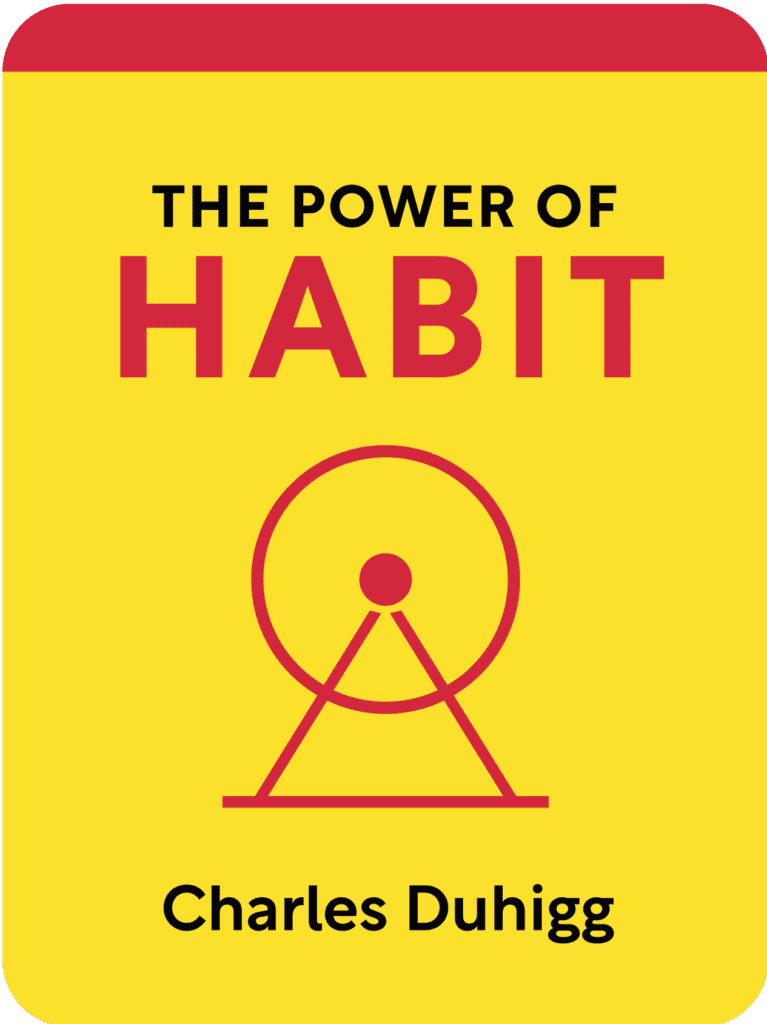10 Books to Master Human Psyche
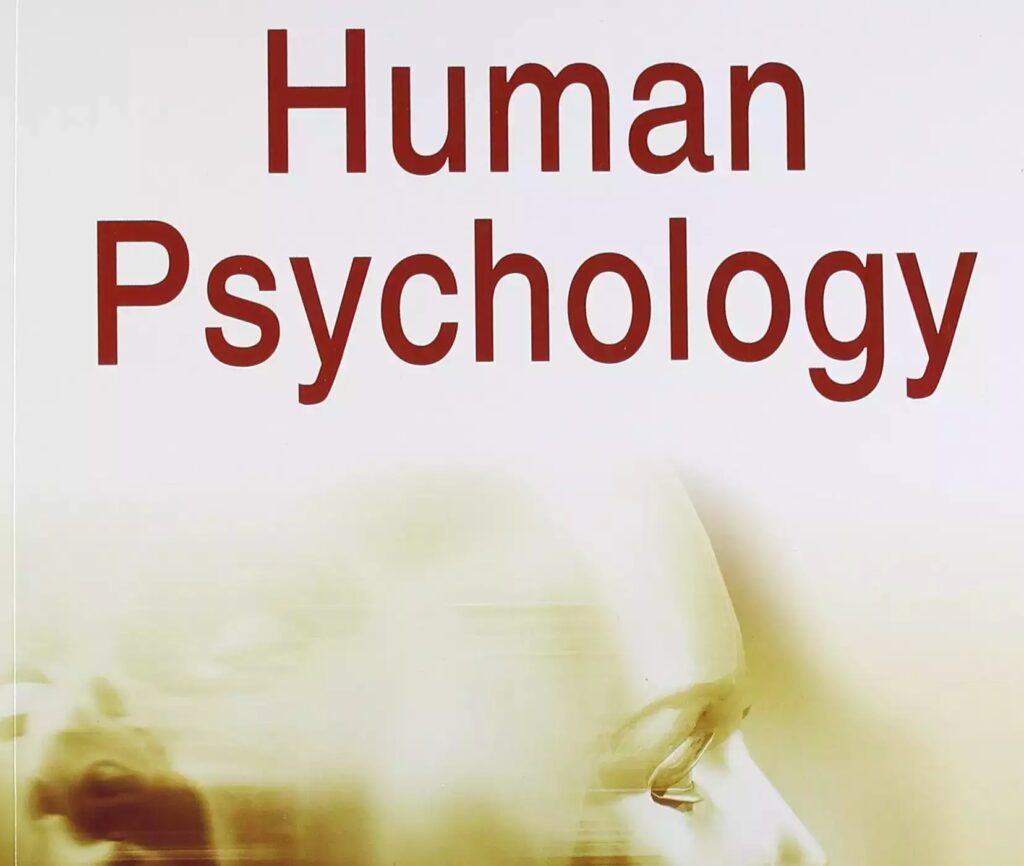
Introduction:
In this blog post, I have curated a list of the top 10 Books to Master Human Psyche that deserve a place on your reading list.
In a world where understanding human behaviour can unlock the doors to success in various aspects of life, from personal relationships to professional endeavours, delving into the intricacies of the human mind becomes paramount. Fortunately, there exists a treasure trove of insightful books penned by eminent psychologists, sociologists, and behavioural scientists, each offering profound insights into the mysteries of human behaviour. Whether you're a seasoned scholar or an eager enthusiast, these literary gems promise to equip you with the knowledge and acumen needed to navigate the complexities of human interaction with finesse.
So, without further ado, let's embark on a journey through the pages of 10 remarkable books that can transform you into a master of understanding human behaviour.
#1. "The Laws of Human Nature" by Robert Greene
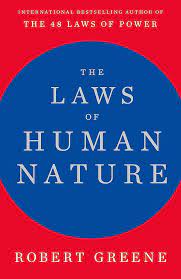
Robert Greene's book explores the intricate dynamics of human behaviour by examining the fundamental laws that govern our actions. Through a blend of psychology, sociology, and philosophy, Greene delves into topics such as social intelligence, emotional mastery, and the art of persuasion. By understanding these universal principles, readers gain invaluable insights into human nature and learn to navigate social interactions with finesse.
Delve into the depths of human psychology with Robert Greene's magnum opus, where he explores the fundamental laws governing human behaviour. Through captivating anecdotes and profound analysis, Greene unveils the hidden motives and subconscious patterns that drive human actions, empowering readers to decipher the intricate dynamics of social interactions.
#2. "Thinking, Fast and Slow" by Daniel Kahneman
Nobel laureate Daniel Kahneman explores the two systems of thinking that influence our decision-making processes. Drawing from decades of research in cognitive psychology, Kahneman elucidates the biases and heuristics that shape our judgments. By recognizing the limitations of intuitive thinking and harnessing the power of deliberate reasoning, readers can make more informed choices and avoid common pitfalls in their decision-making.
The author takes readers on a fascinating exploration of the two systems that shape our thinking— the intuitive, fast-paced system, and the deliberate, analytical system. By illuminating the quirks and biases inherent in human decision-making, Kahneman offers invaluable insights into the workings of the human mind.
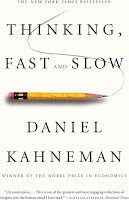
#3. "The Lucifer Effect" by Philip G. Zimbardo
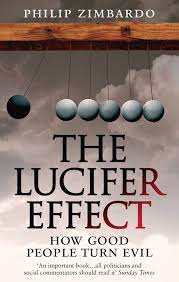
Philip Zimbardo's book delves into the dark side of human behaviour, exploring the psychological factors that contribute to acts of cruelty and evil. Through his renowned Stanford Prison Experiment and other compelling case studies, Zimbardo examines the influence of situational factors, social norms, and authority figures on human conduct. By shedding light on the mechanisms of obedience and conformity, the book prompts readers to reflect on their own capacity for moral courage and ethical behaviour.
The renowned psychologist delves into the darkest recesses of human nature in this thought-provoking book. Zimbardo examines the factors that can lead ordinary individuals to commit extraordinary acts of evil, shedding light on the psychology of obedience and authority.
#4. "Emotional Intelligence" by Daniel Goleman
Daniel Goleman popularized the concept of emotional intelligence, emphasizing its critical role in personal and professional success. By cultivating self-awareness, self-regulation, empathy, and social skills, individuals can enhance their emotional intelligence and navigate social interactions more effectively. Goleman's book offers practical strategies for developing these essential competencies and fostering meaningful connections with others.
In this seminal work, the author introduces the concept of emotional intelligence and its profound impact on personal and professional success. By elucidating the crucial role of emotions in decision-making and interpersonal relationships, Goleman offers practical strategies for cultivating emotional intelligence and harnessing its power.
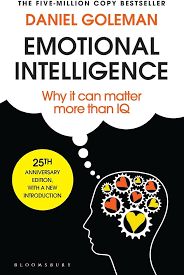
#5. "Games People Play" by Eric Berne
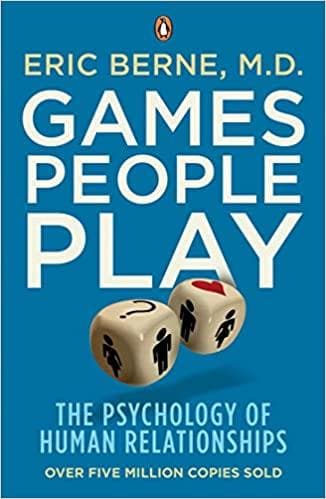
Eric Berne's seminal work introduced the concept of transactional analysis, which examines the interpersonal transactions and psychological games that people engage in. By deciphering the hidden scripts and roles underlying human interactions, Berne offers insights into the dynamics of communication, power struggles, and intimacy. The book equips readers with tools for recognizing and transforming dysfunctional patterns of behaviour, leading to healthier relationships and improved communication.
Eric Berne's groundbreaking book revolutionized the field of psychotherapy with its elucidation of transactional analysis and the social games we play. By deciphering the hidden transactions and psychological scripts underlying human interactions, Berne provides readers with invaluable insights into the dynamics of communication and relationships.
#6. "Influence: The Psychology of Persuasion" by Robert Cialdini
Robert Cialdini explores the psychology of influence and persuasion, revealing the principles that govern human compliance. Through six universal principles— reciprocity, commitment, social proof, authority, liking, and scarcity— Cialdini elucidates the techniques used by marketers, salespeople, and persuaders to sway behavior. By understanding these principles, readers can defend against manipulation and ethically influence others to achieve desired outcomes.
Discover the secrets of persuasion and influence with Robert Cialdini's seminal work. Drawing from extensive research in psychology and behavioural economics, Cialdini uncovers the six universal principles of influence, offering readers practical strategies for ethically persuading others and resisting manipulation.
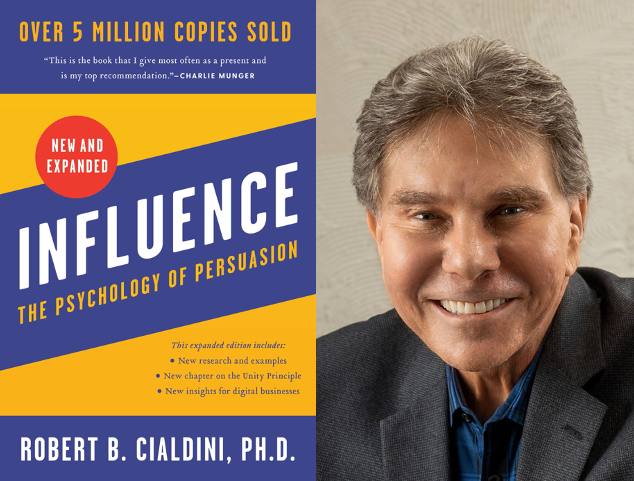
#7. "The Art of Thinking Clearly" by Rolf Dobelli
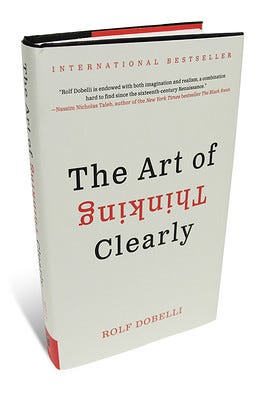
Rolf Dobelli exposes the cognitive biases and logical fallacies that distort our thinking and decision-making processes. By recognizing these mental shortcuts and errors in judgment, readers can enhance their critical thinking skills and make more rational choices. Dobelli's book offers practical advice for avoiding common pitfalls such as confirmation bias, overconfidence, and the sunk cost fallacy, enabling readers to think more clearly and act more wisely.
By arming readers with the tools to recognize and mitigate these mental pitfalls, Dobelli empowers them to think more clearly and make better choices in all aspects of life.
#8. "Drive" by Daniel Pink
Daniel Pink challenges conventional notions of motivation by emphasizing the importance of intrinsic drives such as autonomy, mastery, and purpose. Drawing from research in psychology and behavioral economics, Pink argues that traditional carrot-and-stick approaches to motivation are ineffective for tasks requiring creativity and innovation. Instead, he advocates for a more autonomy-supportive approach that fosters intrinsic motivation and empowers individuals to pursue meaningful goals.
The author challenges conventional notions of motivation and offers a fresh perspective on what drives human behaviour. Drawing from research in psychology and neuroscience, Pink argues that intrinsic motivation— fuelled by autonomy, mastery, and purpose— is the key to unlocking creativity and peak performance.
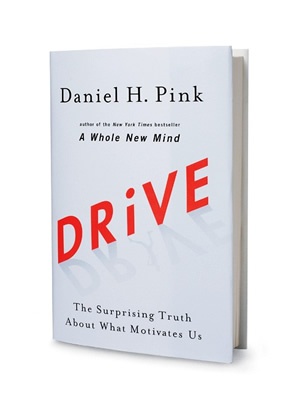
#9. "Predictably Irrational" by Dan Ariely

Dan Ariely explores the irrational tendencies that influence our decision-making processes, from the allure of freebies to the pitfalls of procrastination. Through a series of captivating experiments and real-world examples, Ariely reveals the hidden forces driving our choices and demonstrates how they can be harnessed or mitigated. By understanding the predictable patterns of irrationality, readers can make better decisions and lead more fulfilling lives.
Delve into the fascinating world of behavioural economics with Dan Ariely, as he explores the irrational tendencies that shape our decision-making. Through a series of captivating experiments and real-world examples, Ariely reveals the hidden forces driving our choices, from the allure of freebies to the pitfalls of procrastination.
#10. "The Power of Habit" by Charles Duhigg
Charles Duhigg examines the science of habit formation and change, offering insights into how habits shape our behaviour and identities. By understanding the cues, routines, and rewards that drive habitual behaviour, readers can learn to identify and modify their habits for personal growth and transformation. Duhigg's book provides practical strategies for breaking bad habits, forming positive ones, and leveraging the power of habits to achieve lasting change.
The author examines the science behind habits and explores how they shape our lives, both individually and collectively. By understanding the mechanisms of habit formation and change, Duhigg empowers readers to take control of their habits and harness their transformative potential.
